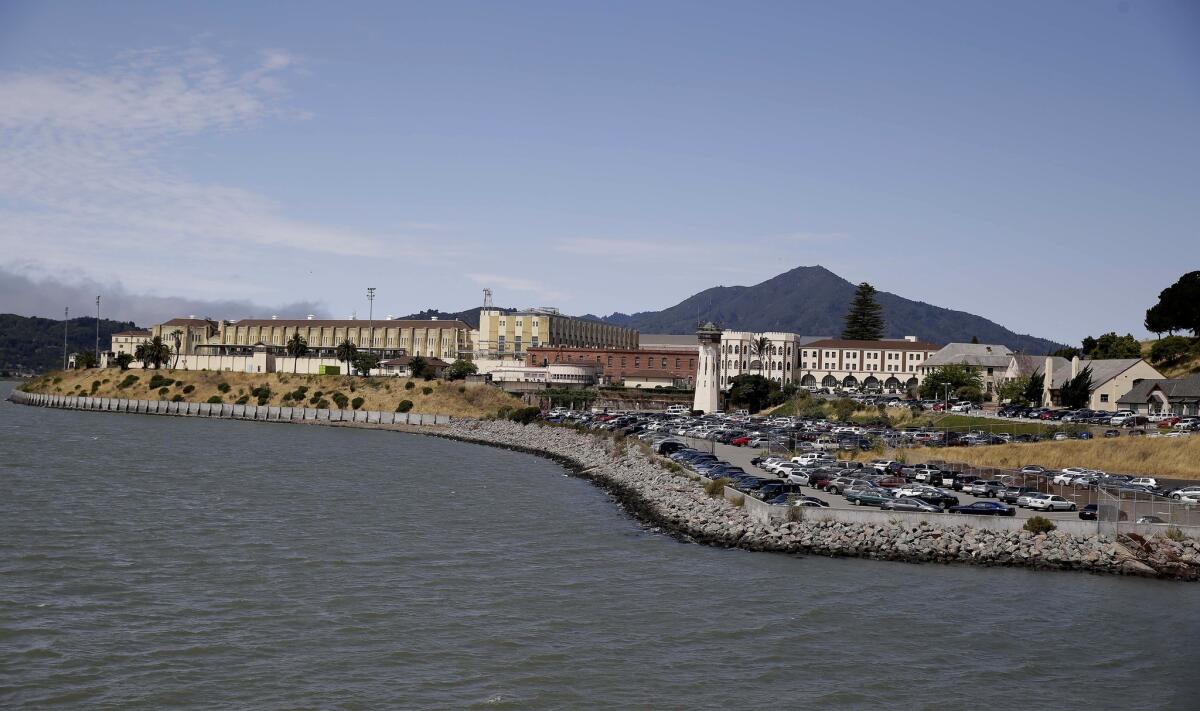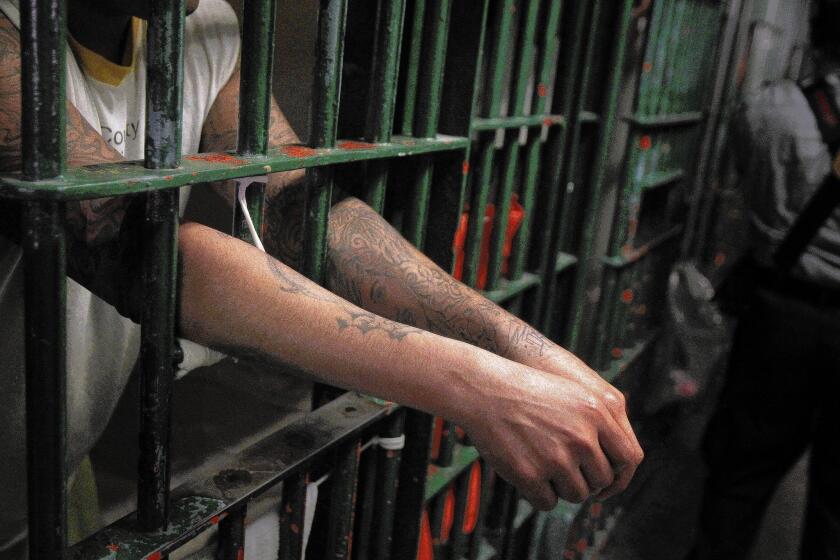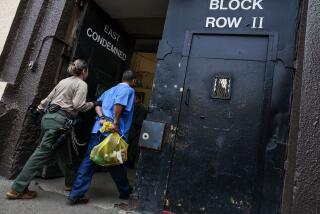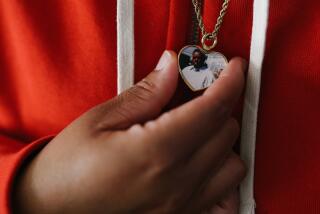Family of San Quentin inmate who contracted COVID-19 files wrongful death claim

- Share via
The family of a San Quentin inmate who contracted the coronavirus has filed the first death claim against the California correctional system related to the pandemic, citing the botched transfer of infected prisoners as the cause of his death.
Daniel Ruiz, 61, is one of 27 inmates and employees who died of virus-related illnesses after San Quentin, California’s oldest prison, took in 121 transfers from the California Institution for Men in Chino, which had become a hotbed for the virus.
Civil rights attorneys for Ruiz’s three children and his mother filed a legal claim Thursday that is a precursor to a lawsuit accusing the California Department of Corrections and Rehabilitation of wrongful and unconstitutional death. About 2,237 San Quentin inmates have tested positive for the virus, whereas before the May 30 transfer, no one had.
At the time of the moves, the Chino prison reported more than 600 cases of the coronavirus and nine COVID-19 deaths. During a state hearing, a federal monitor overseeing inmate health in the California prisons conceded three or four weeks had passed since some of the transferred inmates had been tested.
“The folks in our prisons are human beings. Many who died at San Quentin had done nonviolent crimes and should have been coming back to their families soon,” Ruiz family attorney Michael Haddad said. “It is tragic and unacceptable that some prison bureaucrats treated them as less than human.”
While San Quentin is known as home to California’s death row, it also houses many of lower-level offenders. Haddad said Ruiz was serving time for a minor drug crime. He had been notified in March he was eligible for early release for good behavior as a nonviolent offender, according to the legal claim.
But on July 11 he died. Haddad said Ruiz was known to be among the 40,000 high-risk inmates housed in California prisons because of asthma and other health issues.
Because of corrections policies, the Ruiz family did not learn he had developed COVID-19 and had been hospitalized for two weeks, when he was near death, said attorney Julia Sherwin.
“Daniel suffered alone while the CDCR kept his mom, kids and siblings in the dark about his condition,” she said.
About 288 correctional and medical staff at the Bay Area prison have tested positive for the virus. Deaths so far have included 26 inmates and one employee, Sgt. Gilbert Polanco, 55, a veteran officer.
Gov. Gavin Newsom has acknowledged that the Chino inmates “should not have been transferred.”
To stem outbreaks, Newsom has slashed the prison population by several thousand, including about 3,500 inmate releases so far, with a commitment to release about 8,000 more. San Quentin had housed more than 3,000 people in open tiers that facilitated the spread of the disease, according to the Ruiz family claim.
Corrections officials knew the combination of tight quarters and poor ventilation and older inmates and underlying health problems meant there was a high risk of morbidity, the claim says. It also alleges that corrections officials failed to conduct proper testing.
In the wake of the massive outbreak, the head physician for inmates across the state was replaced.
More to Read
Sign up for Essential California
The most important California stories and recommendations in your inbox every morning.
You may occasionally receive promotional content from the Los Angeles Times.












